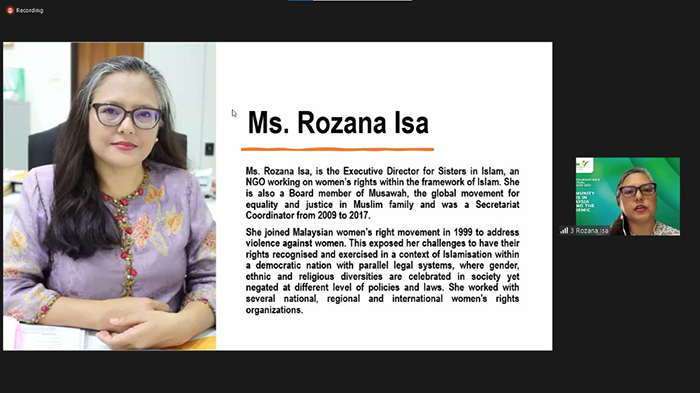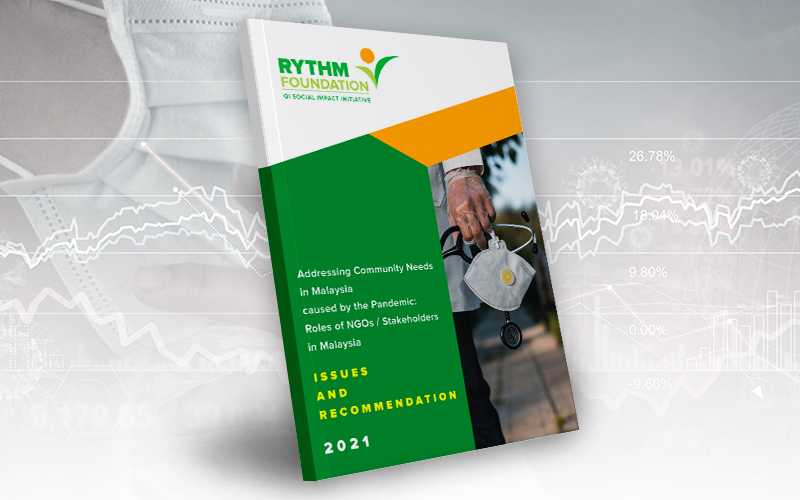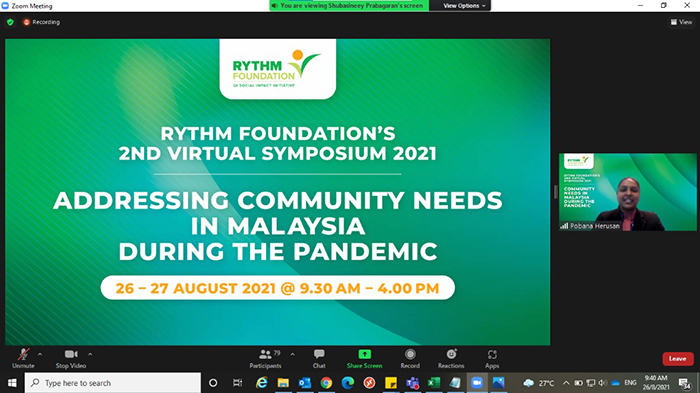Since the initial stages of the COVID-19 pandemic, there have been reports of increased gender-based violence (GBV) against women and girls globally.
Even before the virus emerged, the World Health Organisation estimated that 30% of girls and women aged 15 to 49 had experienced physical or sexual violence in a relationship.
UN Women calls GBV a “shadow pandemic” and says 243 million girls and women had experienced sexual or physical violence by an intimate partner before the pandemic. Since the virus outbreak, domestic violence has significantly intensified. Exacerbating factors include security, health and financial worries, cramped living conditions, and isolation with abusers.
Malaysia is no exception to the worrying trend. Survivors from marginalised communities like refugees, women from the bottom 40% of income earners (B40 group), and minorities remain at risk of experiencing GBV in the country.
Malaysia’s All Women’s Action Society (Awam), an independent feminist NGO, reportedly received 261 cases involving sexual harassment, domestic violence, and rape in 2020, in contrast to 52 cases the previous year.
During the lockdowns, local helplines also noted increased calls and messages, reporting instances of domestic violence and other harmful attacks against women and girls. The NGO Women’s Aid Organisation reported a 44% increase in calls within the first month of lockdown.
Anti-violence advocates believe cases are much higher than available figures due to the fear and stigma of making a complaint. Women are either too afraid to lodge reports or are unaware of the procedures.
The challenges and proposed solutions surrounding the issue were discussed in the second of two symposiums on “Addressing Community Needs in Malaysia During the Pandemic” last year. RYTHM Foundation, the social impact arm of QI Group, organised the virtual meets.
As a result, RYTHM has produced a Position Paper that details the framework and proposes medium- to long-term solutions to the Malaysian government. The Foundation hopes the government implements the recommendations in the 12th Malaysia Plan (2021-2025) to mitigate the impact of the pandemic on vulnerable groups.
Also read: The Impact Of COVID-19 on Special Needs Education in Malaysia
‘Cut Off from the Outside World’
Advocates for survivors have called for more initiative-taking measures to curb GBV.
“Victims are forced to remain in confined spaces with their perpetrators for months, with no access to help. In addition, perpetrators adopted destructive behavioural patterns, such as restricting communications, movement, and independent thought,” the paper noted.
“This violence is not just physical but also mentally abusive. As a result, victims begin to feel completely reliant on their perpetrators, causing them to lose their self-identity and preventing them from escaping this vicious cycle. Their dependency on perpetrators could also stem from losing their source of income and financial autonomy during the pandemic.”
Also read: Ensuring Financial Stability in the Battle Against COVID-19
The report raised several critical issues, chief among them the worrying trend of the pandemic further marginalising women and girls.
“During this period of economic decline, job losses, online classes and remote working, staying at home proved more dangerous to women and children. Although the government and numerous NGOs established helplines and digitalised most of their resources, many women, especially those from marginalised communities, were cut off from the outside world.” The report determined that this resulted in a lack of awareness and disempowerment.
A repercussion of being cut off has been the underreporting of GBV incidences. “There is no way to ascertain the extent of GBV issues across our communities,” says Amy Bala, lead consultant on child protection at Engender Consultancy. “Although surges of GBV cases during the multiple lockdowns were tabulated, the actual figures are much higher. Underreporting prevents authorities and NGOs from formulating practical solutions to eradicate GBV.”
Also read: Position Paper Addresses Pressing Pandemic Issues

The panellists suggested legislative changes and implementations, greater awareness and education, and empowerment campaigns to eradicate the violence. “The recommendations need to be urgently considered by the government and policymakers as the social issue of GBV is only getting worse,” the report warned.
Amy and Rozana Isa, executive director of civil society organisation, Sisters in Islam (SIS) emphasised a more robust infrastructure with trained social workers to empower women and families in these situations. “We need to empower women with the knowledge that they are not second-class citizens and have equal rights under the Federal Constitution,” Rozana said.
The report also called on the relevant ministries to work with NGOs dedicating their time and resources to raising awareness, conducting training and providing essential counselling services to survivors.
The speakers suggested that the administration show a more significant commitment to empowering women. “B40 women, refugees and minorities have been especially disempowered during the pandemic. They choose to suffer in silence due to their dependency on their perpetrators.
“As such, the ministries and departments should work with NGOs and civil society organisations to empower these women in extricating themselves from violent situations.” The report added that they should be aware of the support available – helplines, counselling services, shelters, security, and financial aid.
The activists believe inculcating a firm conviction in gender equality in the next generation could end the violence in the deeply-entrenched human rights issue.
“Parents must disassociate themselves from such false beliefs and begin to adopt gender equality within their households. The government should intervene by producing resources and materials to encourage breaking down stereotypes and suggesting effective parenting techniques to ensure family units inculcate gender sensitivity.”
Another urgent recommendation includes passing vital legislation. “The legislative framework is pivotal in efforts to eradicate GBV within our society. Legislation is also required to address the insufficiency of social workers. Worrying statistics indicate that social workers are spread too thin, so women and children suffering from GBV may not receive the required attention.”
On its part, the government has pledged to do more to end violence against women and children. For example, the Finance Ministry allocated RM13 million in the 2022 Budget to empower the federal police’s Sexual, Women and Child Investigations Division (D11) to end violence against women and children.
The allocation includes beefing up the division’s personnel and providing significant assistance to social support centres and NGOs to increase the number of survivor shelters.






